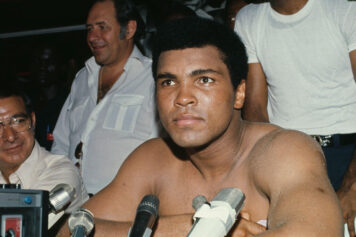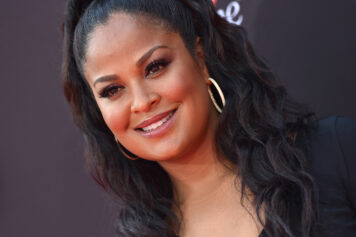If you ever got the chance to check out the HBO drama, Muhammad Ali’s Greatest Fight, you may have wondered why there are almost no black people in the movie.
The film, which focuses on the sports hero’s battle with America for refusing to fight in the Vietnam War, takes place in the early ’70s, a time when race relations and civil rights were big issues in the country.
Ali was unapologetically outspoken about the racial issues of the day, saying at one time:
“No, I am not going 10,000 miles to help murder kill and burn other people to simply help continue the domination of white slave masters over dark people the world over. This is the day and age when such evil injustice must come to an end.”
At another time, he said:
“Why should they ask me to put on a uniform and go 10,000 miles from home and drop bombs and bullets on brown people in Vietnam while so-called Negro people in Louisville are treated like dogs?”
However, these realities were not depicted in the film.
In fact, the only other black faces seen in the film, besides actor Danny Glover’s, were those seen in archival footage of Ali. Glover played the role of Justice Thurgood Marshall.
Muhammad Ali’s Greatest Fight has a lily-white cast because it’s a “Supreme Court drama,” at least this was the explanation given by the show’s creators at TCA Summer TV Press Tour, according to a Deadline report.
In response to a TV critic’s question about why the movie had so many white characters and didn’t “go into what black people were thinking” when the heavyweight champ refused to be conscripted into the U.S. military to fight in Vietnam on religious grounds, screenwriter Shawn Slovo explained:
“We were making a Supreme Court drama. There were no black clerks and woman clerks. That’s the drama we were telling. We chose to make a Supreme Court drama about the Ali case. For refusing to be conscripted into the military, Ali was arrested, found guilty on draft evasion charges and stripped of his boxing title. In 1971 the Supreme Court overturned his conviction. This movie is about the justices coming to that decision.”
I totally understand why a moviemaker would want to have an accurate portrayal of reality in a movie like this.
But I can’t help but wonder why the racial component is always the easiest part of reality to leave out of American period films.
What do you think?


